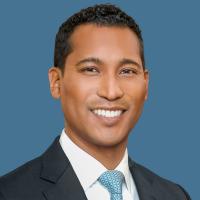Christians Should Remember Their 'Dual Citizenship' When Debating the Bible in Political Terms
WASHINGTON – Finding deeper meaning in the Bible, a book Christians view as the divinely-inspired word of God, is a custom believers have been practicing for centuries both in private and corporate worship.
But deciphering the sacred text's meaning can be fraught with confusion and frustration without context and revelation from the Holy Spirit, experts say. That's why there are scores of books, courses, and teachings about how to study the scripture.
Dr. Tracy Radosevic requires students in her biblical storytelling class at Wesley Theological Seminary to dive into scripture to explore visual and creative ways to help others connect with the Bible's stories, themes, and overall message.
That approach could have proved helpful in political circles over the last week, as Republicans and Democrats referenced the Bible in competing policy positions over immigration.
US Attorney General Jeff Sessions created a firestorm when he quoted the New Testament book of Romans to enforce the Trump administration's zero-tolerance policy of separating families who illegally cross the border.
"I would cite you to the apostle Paul in his clear and wise command in Romans 13 to obey the laws of the government because God has ordained the government for his purposes," Sessions explained last week at a speech to law enforcement in Fort Wayne, Indiana.
Critics on the Right and Left shot back with strong rebukes – from evangelicals expressing their opposition to separating children from their parents, to more vocal challengers like a US senator who compared Trump's policies to the "devil's schemes."
Mr. Trump's 2016 presidential opponent, Hillary Clinton, also weighed in saying, "Those who selectively use the Bible to justify this cruelty are ignoring a central tenet of Christianity," adding that "Jesus said, 'Suffer the little children unto me, not let the children suffer.'"
Some may question why a book which includes texts written thousands of years ago would be relevant in today's political debate.
"I think the Bible is always significant and always relevant," said the Rev. Dr. David McAllister-Wilson, president of Wesley Theological Seminary.

Yet, he warns of the danger of selecting certain passages to fit a particular agenda, "rather than allow the Bible to transform them, challenge them, and cause them to think a new thought about what God really wants."
After the negative headlines and sound bites produced by the heated immigration debate, some wonder if the tactic of using the Bible in policy debates may actually backfire by turning the curious away when Jesus's mandate was to make disciples.
But referencing scripture to justify policies is a tactic that has been used to inspire and inform public debate throughout American history.

"At the Museum of the Bible, our mission statement is to invite all people to engage with the Bible," Norm Conrad, who works as a museum curator, explained. "We don't tell them how to engage. So the fact that there's a controversy that they're using God's Word, there's some form of engagement that's happening as a result of that."
The museum wants to encourage those conversations by highlighting how Americans have used the Bible in the past, including during the Revolutionary War, slavery and the Civil War, women's rights, and the civil rights movement.
McCallister-Wilson also believes in engagement, especially to unite Bible-believing Christians who may end up on polar sides of the debate.
"People in America, especially, engage in those discussions with a dual citizenship," he explained. "We are voting members and participants of a democracy. So that necessarily places us in the public square. But we also believe what Jesus said the Good News was, which is the kingdom of God is at hand."
"So we're also citizens of the kingdom of God," McAllister-Wilson continued. "If we allow ourselves to be bounded by our common kinship as children of God, and bound by attention to the Bible and all its complexity and to the experience of the Holy Spirit – whatever that might be – if that's the boundary of our discussion, I think we're going to be okay."




